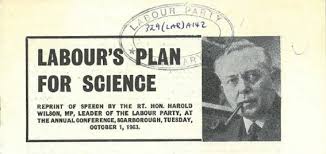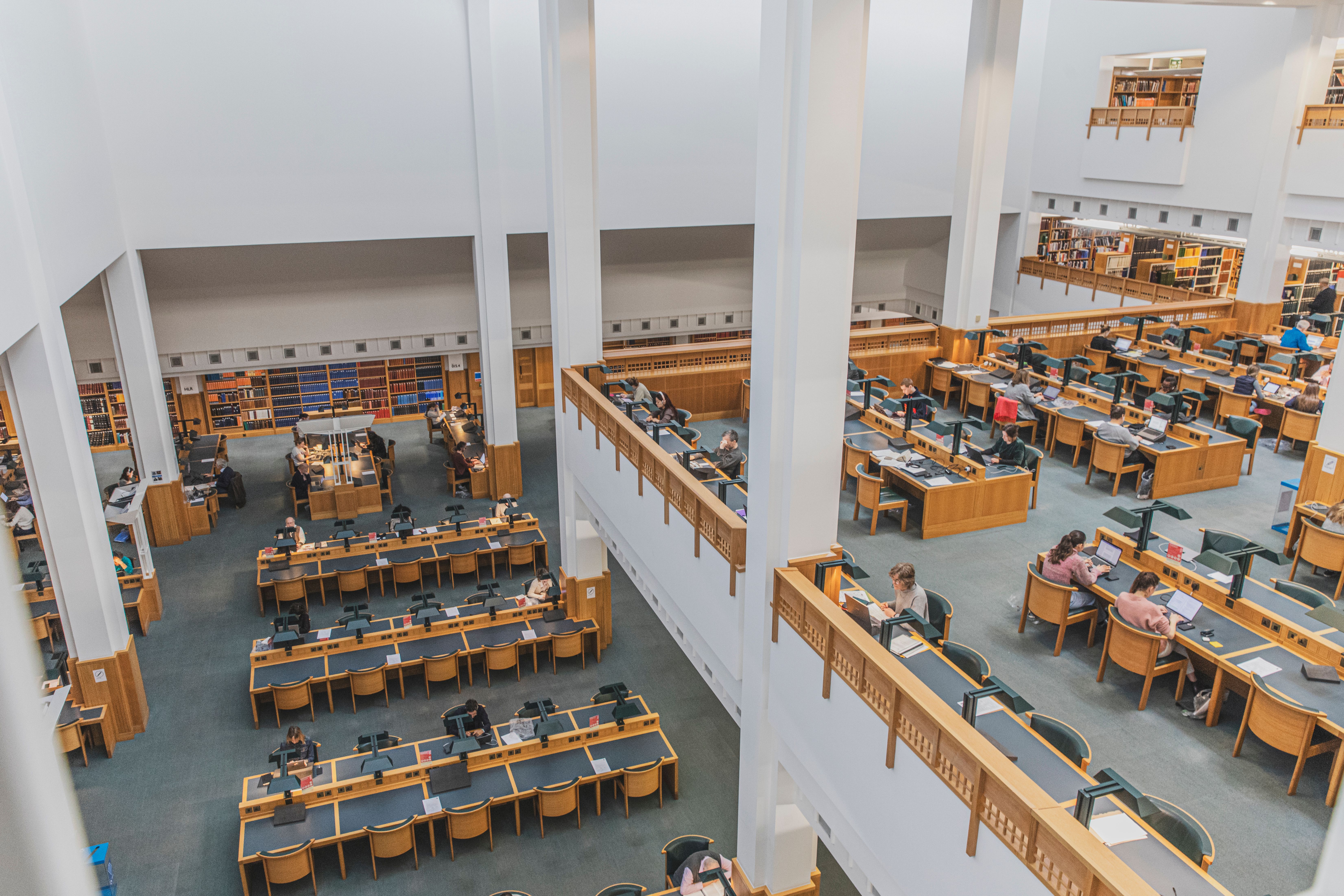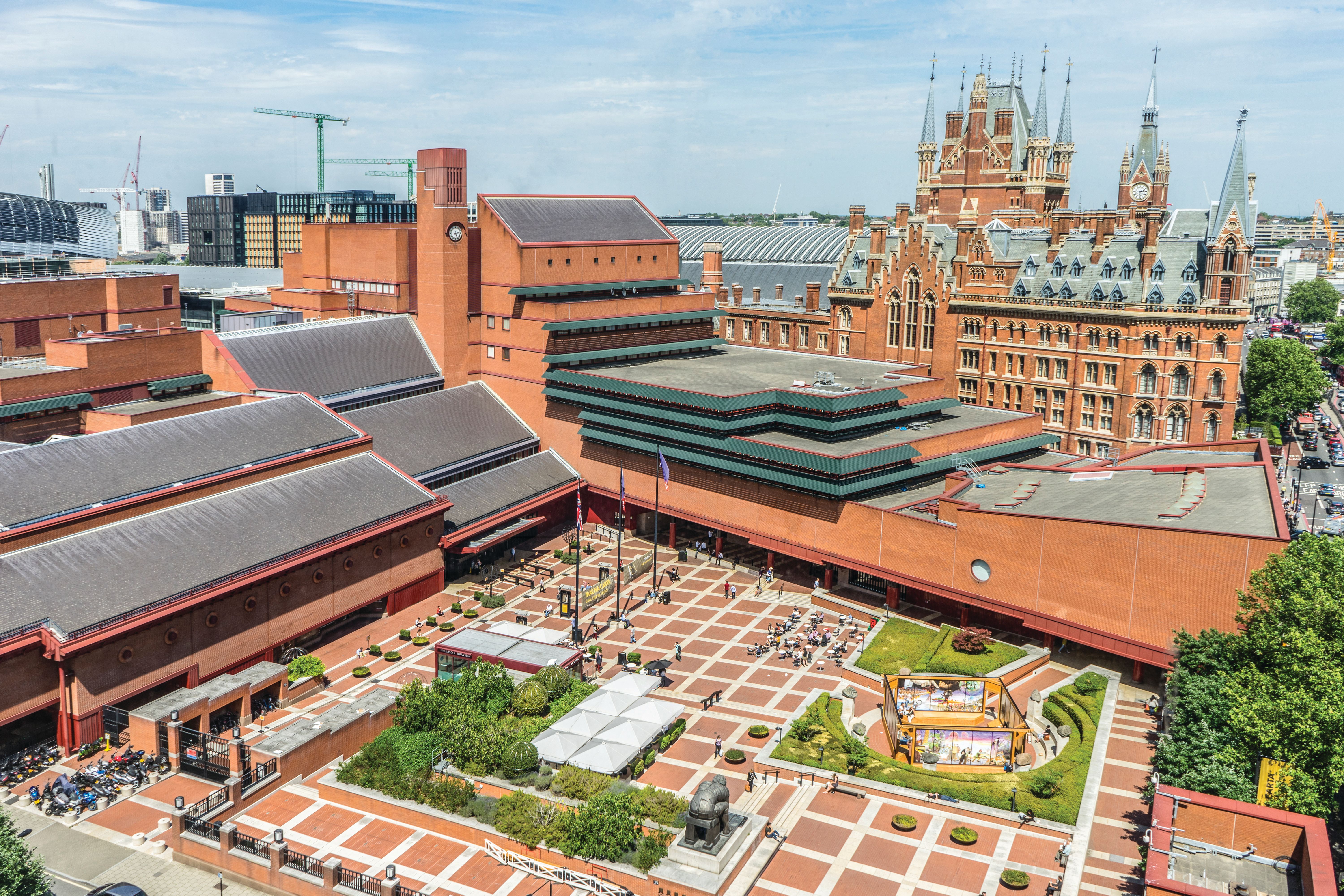Blog series Sound and Vision
Author Emmeline Ledgerwood, Discovering Science website co-ordinator
Originally published in October 2023.
Sixty years ago, on 1 Oct 1963, the then Labour party leader, Harold Wilson, delivered his famous ‘white heat’ speech at the Labour party conference in Scarborough. In this speech he outlined the party’s plans to harness a ‘scientific revolution’ to modernise British industry and drive economic progress: 'the Britain that is going to be forged in the white heat of this revolution will be no place for restrictive practices or for outdated methods on either side of industry.'

The speech’s rhetoric – linking planning, socialism and science – has been described as one that ‘caught the mood of the moment’ after 12 years of Conservative government. Many of the ideas that influenced the proposals put forward in this speech had been developed by left-wing scientists after the Second World War. The Labour party went on to win the next general election a year later in October 1964.
In this extract from the speech, Wilson articulates the country’s need for scientists and what was to be expected from them.
Transcript
First, we must produce more scientists. Secondly, having produced them we must be a great deal more successful in keeping them in this country. Thirdly, having trained them and kept them here, we must make more intelligent use of them when they are trained than we do with those we have got. Fourthly, we must organise British industry so that it applies the results of scientific research more purposively to our national production effort.
Wilson declared that 'to train the scientists we are going to need will mean revolution in our attitude to education.' He emphasised the party’s commitment to comprehensive education and expanding access to higher education including the establishment of a ‘university of the air’ – the Open University came into being in 1969.
We are in familiar territory with Wilson’s presentation of science and scientists as being fundamental to improving the nation’s economic performance. Earlier this year the UK Government announced its own plans to channel scientific and technological expertise to grow the UK economy. Wilson also voiced concerns that resonate with current debates about the role of AI in society today: 'If man is not going to assert his control over machines, the machines are going to assert their control over man.' Whether the year is 1963 or 2023, listening back this speech reminds us that society and politicians are continually balancing the promises and challenges of scientific advancement.
The full speech (C1398/0157) is available to listen to in the British Library Reading Rooms.
Further reading
David Horner, ‘The Road to Scarborough: Wilson, Labour and the Scientific Revolution’ in R. Coopey et al. (eds), The Wilson Governments 1964-1970 (Pinter Publishers, 1993), pp. 48–71.
David Edgerton, The Rise and Fall of the British Nation: A Twentieth-Century History (Allen Lane, 2018).

Sound and vision series
This blog is part of our sound and vision blog series, which highlights the work of our curators, recent acquisitions, digitisation efforts, and collaborations beyond the Library.
It showcases the sound archive’s remarkably diverse collections, spanning from the earliest recordings to born-digital material, and everything in between.
Find out more

Our collections
You can access millions of collection items for free. Including books, newspapers, maps, sound recordings, photographs, patents and stamps.


